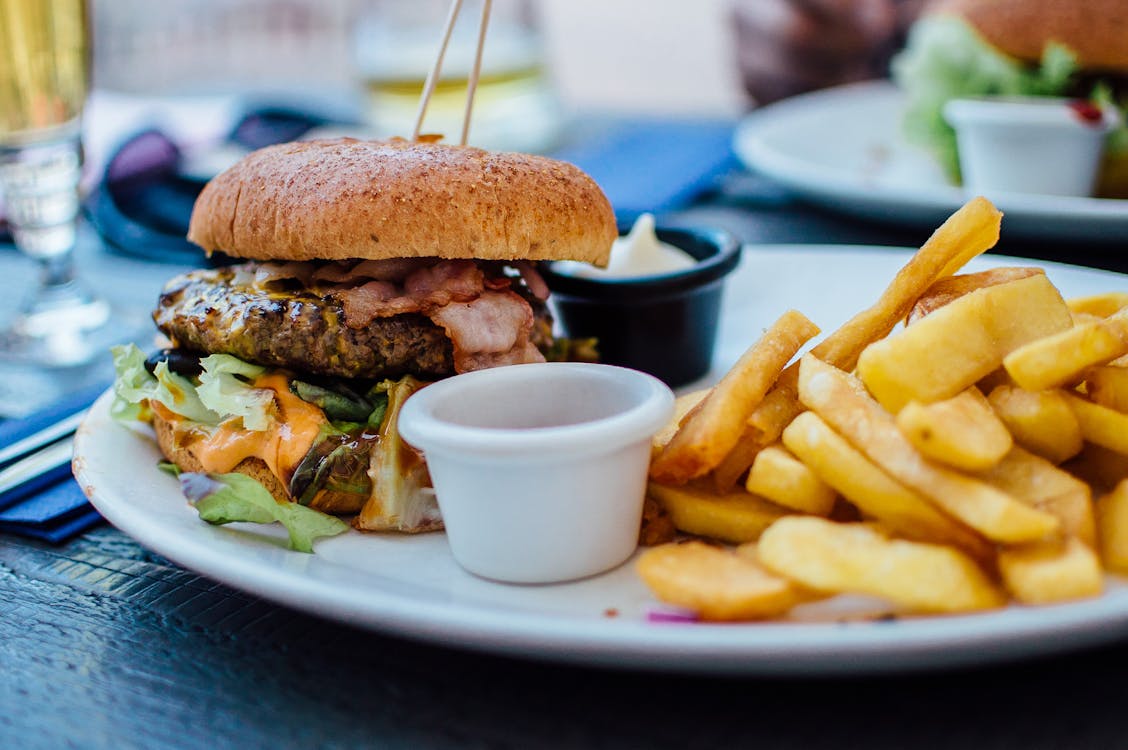
Eating sustainably means choosing foods that are good for your health and the environment, while reducing the impact of food production and consumption on the planet. One of the ways to eat sustainably is to reduce food waste, which is a major contributor to greenhouse gas emissions, water pollution, and land degradation. According to the Food and Agriculture Organization (FAO), about one-third of all food produced in the world is lost or wasted, which amounts to about 1.3 billion tons per year.
Reducing food waste not only helps the environment, but also saves money, resources, and time. It also allows you to make the most of the food you have, and enjoy it in creative and delicious ways. Here are some tips on how to eat sustainably and reduce food waste:
How To Eat: Choose plant-based foods
Plant-based foods, such as fruits, vegetables, grains, legumes, nuts, and seeds, are generally more sustainable than animal-based foods, such as meat, dairy, and eggs. This is because plant-based foods require less land, water, energy, and inputs than animal-based foods, and produce less greenhouse gas emissions and waste. Plant-based foods are also rich in fiber, antioxidants, vitamins, minerals, and phytochemicals, which can benefit your health and prevent chronic diseases.
To eat more plant-based foods, you can try to:
- Follow a vegetarian or vegan diet, or adopt a flexitarian approach that allows occasional consumption of animal products.
- Replace some or all of the animal protein in your meals with plant protein sources, such as beans, lentils, tofu, tempeh, seitan, nuts, seeds, or plant-based meat alternatives.
- Incorporate more fruits and vegetables into your snacks and desserts, such as smoothies, salads, dips, pies, cakes, or muffins.
- Experiment with different cuisines and recipes that feature plant-based ingredients, such as Indian, Thai, Mexican, Mediterranean, or Middle Eastern dishes.
How To Eat: Use upcycled ingredients
Upcycled ingredients are ingredients that are made from parts of food that are usually discarded or considered waste, such as peels, stems, seeds, pulp, or scraps. Upcycling these ingredients can help reduce food waste and create new products that are nutritious and tasty. For example,
- Banana peels can be used to make banana peel bacon, banana peel cake, or banana peel tea.
- Broccoli stems can be used to make broccoli stem slaw, broccoli stem soup, or broccoli stem pesto.
- Watermelon rinds can be used to make watermelon rind pickles, watermelon rind jam, or watermelon rind curry.
- Coffee grounds can be used to make coffee ground cookies, coffee ground scrub, or coffee ground fertilizer.
To use upcycled ingredients in your cooking, you can try to:
- Buy whole fruits and vegetables instead of pre-cut or processed ones.
- Wash and peel your fruits and vegetables only when necessary.
- Store your peels, stems, seeds, pulp, or scraps in airtight containers in the fridge or freezer until you are ready to use them.
- Look for recipes online or in cookbooks that use upcycled ingredients.
- Support local businesses or brands that sell products made from upcycled ingredients.

How To Eat: Plan ahead and store properly
Planning ahead and storing properly are key strategies to reduce food waste and eat sustainably. Planning ahead helps you avoid buying too much food or food that you don’t need. Storing properly helps you preserve the freshness and quality of your food and prevent spoilage. Here are some tips on how to plan ahead and store properly:
- Make a shopping list based on your meal plan for the week.
- Check your pantry, fridge, and freezer before you go shopping to see what you already have.
- Buy only what you need and avoid impulse purchases.
- Use the FIFO (first in first out) method to rotate your food items so that you use the oldest ones first.
- Store your food in appropriate containers with labels and dates.
- Follow the storage guidelines for different types of food.
- Use your freezer to extend the shelf life of your food.
- Compost your food scraps if possible.
Conclusion
Eating sustainably and reducing food waste are important steps to protect the environment and improve your health. By choosing plant-based foods, using upcycled ingredients, planning ahead and storing properly, you can enjoy a variety of delicious dishes while saving money, resources, and time. Try these tips today and see the difference for yourself. Bon appétit! 😋




